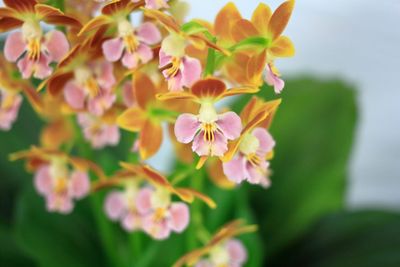Can You Grow Orchids in Zone 9?
While many varieties of orchids are truly tropical, you can find several that are cold hardy and that can easily grow in your zone 9 garden. What you will find, though, is that most of these temperate varieties of garden orchids are terrestrial rather than epiphytes. Unlike their tropical gardens that don’t require soil, many of the cold hardy varieties need to be planted in soil.
Orchid Varieties for Zone 9 Gardens
When growing orchids in zone 9, it is important to find the right varieties. Look for cold hardy varieties, because even temperatures of 40 degrees F. (4 C.) can be damaging to these plants. Terrestrial varieties of orchids are more likely to tolerate the cold. Here are some examples: Lady slipper. The showy lady slipper is a popular choice for the colder growing zones. Many of the varieties of lady slipper are native to the U.S. These flowers have a pouch-like bloom, reminiscent of a slipper, and come in white, pink, yellow, and other shades. Bletilla. Also called hardy ground orchids, these flowers bloom for a long, ten week period in most places and prefer partial sun. They come in varieties that are yellow, lavender, white, and pink. Calanthe. This genus of orchids has well over 100 different species and is native to Africa, Asia, and Australia. Calanthe are some of the easiest orchids to grow, requiring only minimal care. You can find varieties with flowers that are yellow, white, green, pink, and red. Spiranthes. Also known as Lady’s Tresses, these orchids are hardy and unique. They produce long spikes of flowers resembling a braid, hence the name. Give these flowers partial shade and you will be rewarded with fragrant, white blooms. Orchids for wetlands. If you have a wetlands area or pond in your garden, try some of the hardy orchid varieties that thrive in moist environments. These include members of the Calopogon and Epipactis groups of orchids that produce a variety of shapes and colors. Growing orchids in zone 9 is possible. You only need to know which varieties will tolerate the cold and thrive in your garden setting.
